Former British farmer helps Ukrainians rebuild their lives
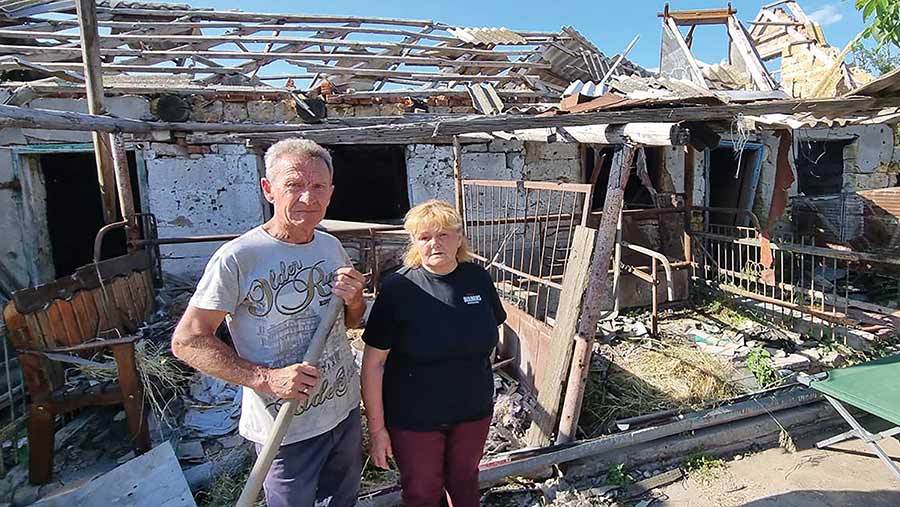 Farmers Alexander and Svitlana in front of the remains of their cattle shed © Bear Ukraine
Farmers Alexander and Svitlana in front of the remains of their cattle shed © Bear Ukraine Nearly 18 months have passed since Russia first breached Ukrainian soil, and the ongoing political and economic uncertainty has had untold effects on the country’s farmers and their everyday lives.
Amid the many ongoing humanitarian efforts to rebuild and restructure parts of the war-torn country, Jonny, a farmer from Cornwall, and Elizabeth, a technology director from Sussex, have been volunteering in Ukraine since March 2022, and have together founded British Expeditionary Aid & Rescue.
See also: British farmers deliver vehicles full of aid to Ukraine
Having spent most of last year carrying out near-daily evacuations from the Donbas region, particularly from Bakhmut and Lysychansk, they are now focusing on various projects around Kherson and Mykolaiv, including distributing almost half-a-million litres of clean drinking water.
Through their regular work in the villages, and with the help of a translation app, they have built up a relationship with the local farming families, and Jonny has offered an insight into agrarian life in Ukraine.
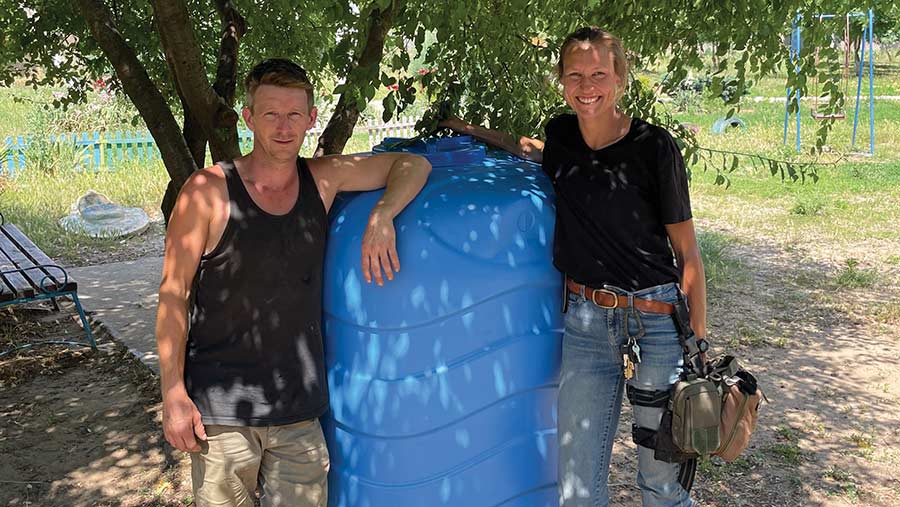
Jonny and Bear co-founder Elizabeth © Bear Ukraine
Rural life
“In the villages, pretty much everyone is farming in one way or another,” says Jonny.
“A lot of them have had their animals stolen, or killed, or eaten by the Russians, because all of this area was under occupation.”
Even before the recent attack on the crucial Kakhovka dam, Jonny and his team discovered that many of the Ukrainian people were unable to access clean drinking water.
“A lot of the villages are isolated, largely destroyed, and some don’t even have undrinkable water, let alone drinking water,” he says.
“So, we decided to try to do something about this. We strapped two IBCs into our Transit minibus, bought some 1,000-litre tanks, tracked down drinking water – which is easier said than done in Mykolaiv – and began installing them in villages.”
Attributing the simple yet effective design to farmer resourcefulness, Jonny says the system is based on items that could be found and put together in a farmyard.
Consisting of an IBC, with a hosepipe attachment, and a pump that connects to the minibus, the water distribution systems have been set up in dozens of villages and are usually situated at small humanitarian aid centres.
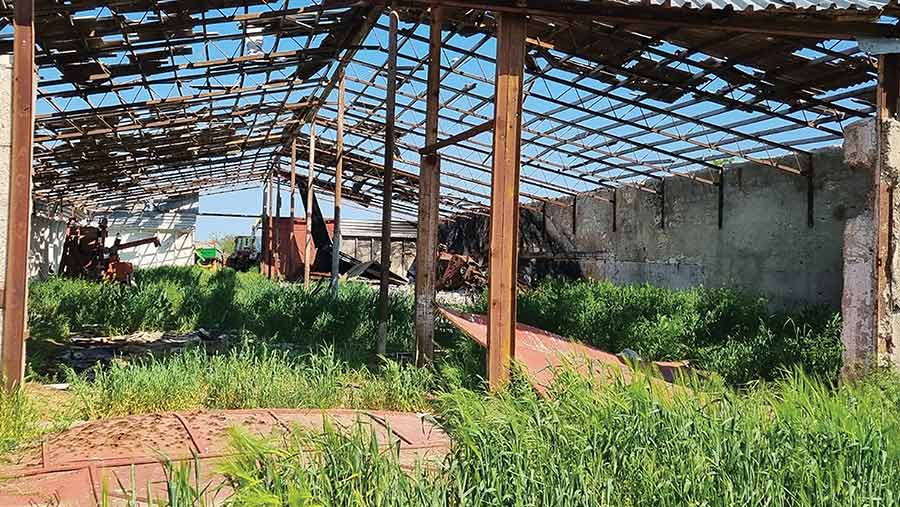
© Bear Ukraine
Barriers to working the land
“It has been quite surprising seeing how close to the front line many farmers are still going about their business. You see tractors that are just peppered with shrapnel marks,” says Jonny.
“When we’re driving down the roads, it’s a common sight to see a rocket stuck in a field, with a farmer ploughing or cultivating at the other end.”
Throughout the course of the conflict, established irrigation channels through farmland have been either damaged or entirely destroyed, meaning many farmers have been unable to grow traditionally higher-value vegetables and crops.
“The irrigation channels are perfect for hiding tanks and armaments, so some of the farmers have chosen to grow lower-value crops this year,” says Jonny.
But irrigation is not the only, or most pressing, barrier to working the land. Retreating Russians have been known to litter agricultural land with antipersonnel and anti-tank mines.
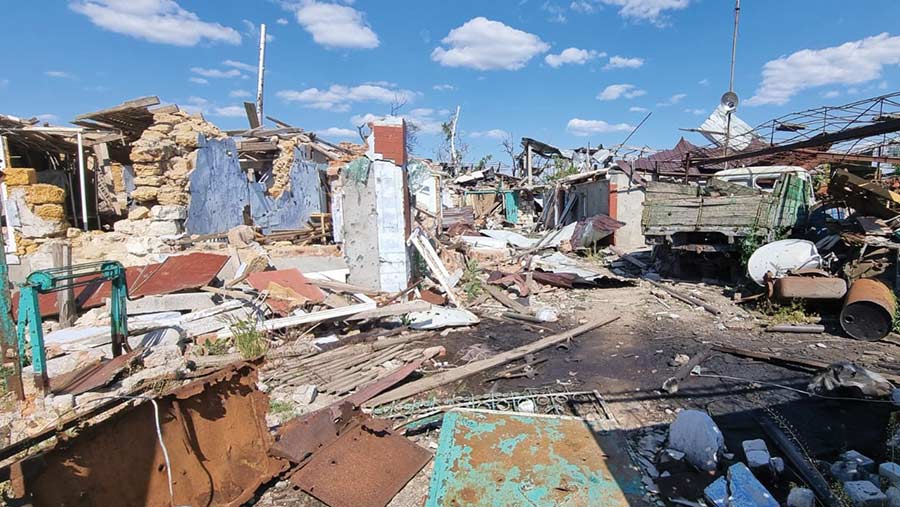
Farmyard after a bombing attack © Bear Ukraine
“The unexploded mine issue is just rife. That could be an antipersonnel mine, which is designed to blow someone’s foot or leg off, or it could be an anti-tank mine, which would make a real mess of a tractor.
“We took a farmer to a hospital in Odessa after he drove over an anti-tank mine. I don’t know how he survived it because it blew his tractor in half.
“It’s a big problem. The Ukrainians have a decent idea of which areas have been mined, but this means that there is a lot of land that cannot be used for farming.”
Economic consequences
Jonny explains that many of the farmers in Ukraine operate on a small, local scale, often with a handful of cattle and parcels of land on which they base their livelihoods.
“There are two livestock farmers that I know,” he says. “One has had his cattle slaughtered and eaten by the Russians, and the other said his cattle had been stolen and taken back to Russia.
“Because of the state of the economy, many cannot afford to restock and buy more cattle, or they don’t want to risk buying more because of the mine risk and uncertainty.”
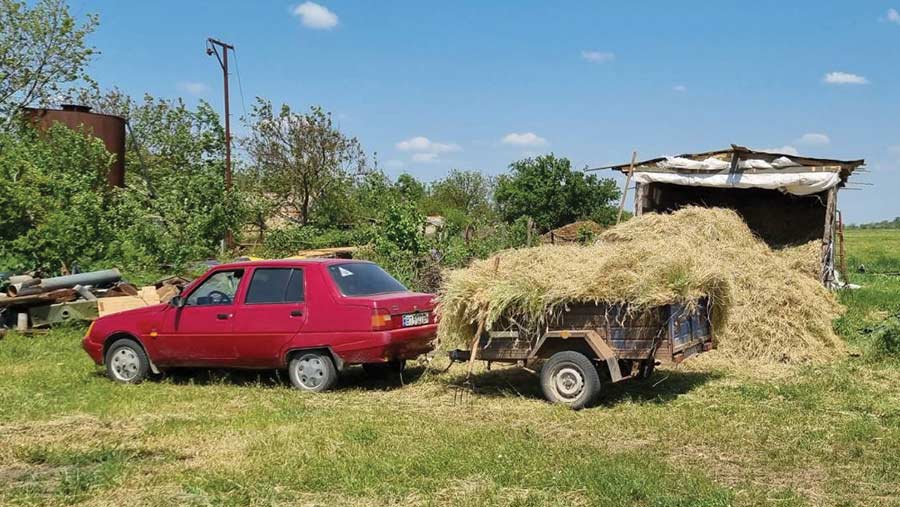
Making hay © Bear Ukraine
Russian shelling and the damage to housing has led many people to leave cities and towns in pursuit of safer housing. This has, unfortunately, meant that many farmers and cottage industries have lost their market.
Jonny says: “A lot of these farmers have three or four cattle, which they will milk by hand, and then use the produce to create various products, such as butter or cheese, that would be sold in the nearest city.
“Or they would bottle the milk and take it to sell. The problem is that many of the people have fled from these cities now, so the local farmers have no one to sell to anymore.”
Rebuilding
As the winter months approach, Jonny and Elizabeth have been working to source and distribute building materials to repair the damage to housing.
“The Ukrainians are mainly trying to rebuild their homes and get life back to normal. In many of these villages there is not a building left that has not been struck by a tank, artillery or phosphorous,” he says.
To make a contribution to resources or to find out more about the efforts to rebuild Ukraine, visit www.britishexpeditionaryaidrescue.org
